In a historic moment, the West cannot look away from Ukraine
By Thomas Graham, Jr. | February 23, 2022
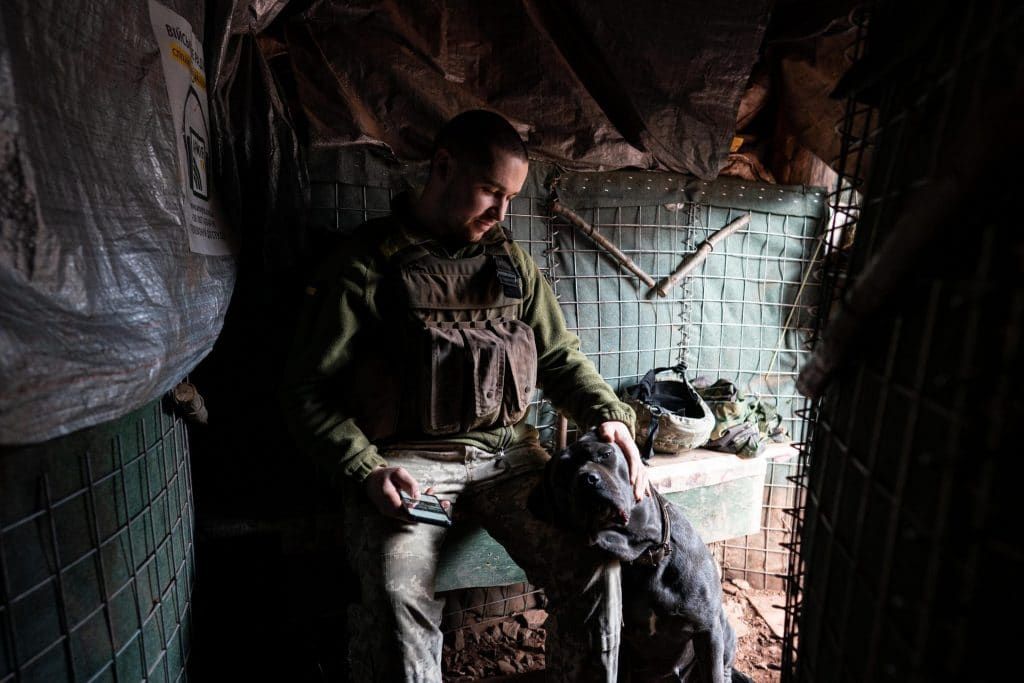 A Ukrainian serviceman pets his dog at a frontline position outside of Novaluhansâke, Ukraine on Tuesday. (Photo by Wolfgang Schwan/Anadolu Agency via Getty Images)
A Ukrainian serviceman pets his dog at a frontline position outside of Novaluhansâke, Ukraine on Tuesday. (Photo by Wolfgang Schwan/Anadolu Agency via Getty Images)
In December 1991, the Soviet Union passed into history, leaving nuclear weapons on the territory of many of the former republics. The return to Russia, the designated nuclear weapon successor state, of weapons deployed on the territory of the smaller republics was already underway, but the four larger republics presented a more complicated problem. The deployments in the three former republics designated as nonnuclear weapon successor states—Belarus, Kazakhstan, and Ukraine—were sizeable. The weapons left by the Soviet Union on the territory of Ukraine had the effect of making Ukraine the possessor of the third largest nuclear weapon stockpile in the world.
As the post-Soviet nuclear world was structured with respect to the four larger successor states, there would be only one nuclear weapon state successor—Russia. All four countries would join the Non-Proliferation Treaty (NPT) and all four would be parties to the START arms control agreement—Russia as a full-fledged member, the other three as associate members via a new document known as the Lisbon Protocol. Russia became a party to START and an NPT member, Belarus and Kazakhstan fairly promptly agreed, and all four signed the Lisbon Protocol in the spring of 1992. But Ukraine was slow to implement the protocol; the Ukrainians were very reluctant to surrender to Russia the huge Soviet nuclear weapon arsenal inherited from the Soviet Union. At one of the early meetings that the author attended a senior Ukrainian official said, “Ukraine is the France of the East; France has nuclear weapons, and so should we.”
In this arsenal were roughly 5,000 nuclear weapons, including intercontinental ballistic missiles (ICBMs) of the Soviet SS-18 class outfitted with 10 very powerful nuclear warheads. Ukraine eventually agreed to turn all their weapons over to Russia in exchange for security guarantees, which Ukrainian officials said must be “ironclad,” from Russia, the United States and Great Britain. Ukraine looked upon the two Western states, particularly the United States, to ensure these guarantees were fully observed and remained indefinitely so. The removal of this arsenal was hailed as a victory for arms control and Ukrainians were called model world citizens. But the truth is that the decision was a chaotic upheaval full of discord, infighting and fears that Russia one day would take advantage of Ukraine’s nonnuclear status and attack and conquer Ukraine.
After a lengthy internal struggle Ukraine finally decided to implement the steps of returning the weapons to Russia. Because of the long, bad history of Ukrainian-Russia relations, the guarantees for decreasing Ukrainian vulnerability to Russia were cast as political commitments but took on the nature of legal obligations because of the centrality of the deal for Ukrainian independence, particularly for the United States, which pressed the hardest for this solution.
“[Ukraine] demanded that, in exchange for nuclear disarmament, it would need ironclad security guarantees. That was the heart of the agreement signed in Moscow in early 1994 by Russia, Ukraine and the United States,” William Broad wrote in the New York Times early this month. Ukraine didn’t get the treaty that it wanted. But later in 1994 the accord, which is known as the Budapest Memorandum and signed by Russia, Ukraine, Great Britain and the United States, provided that no signatory would use force or threats against Ukraine and all would respect its sovereignty and existing borders. The agreement also provided that, if aggression took place, the signatories would seek immediate action from the United Nations Security Council to aid Ukraine.
And Washington did promise that it would take its political commitments as seriously as its legal obligations, according to Mariana Budjeryn, Ukraine specialist at Harvard University and the author of a recent book on Ukraine and nuclear weapons entitled Inheriting the Bomb.[2] But beyond this, given the value exchanged for America’s solemn political commitment, it is quite likely that the World Court if asked would hold the commitment to be legally binding under international law. It has done similar things in the past, such as holding a verbal commitment of a foreign minister legally binding under international law under special circumstances. Furthermore, the Ukraine, Belarus, and Kazakhstan actions are important parts of the Non-Proliferation Treaty post-Soviet regime, and should Russia decide to invade Ukraine, it would be a direct blow against the NPT. The United States and Ukraine have several decades of close cooperation; the founding agreement of this cooperation is the Budapest Memorandum. “After Russian troops invaded Crimea in early 2014 and then began a proxy war in Eastern Ukraine, Mr. Putin dismissed the Budapest accord as null and void,” Broad wrote. Last, it is noteworthy that, as Broad continued, “experts fear that the current crisis could turn Ukraine from an example of arms-control benefits to one of atomic-disarmament risks and the Irans and Saudi Arabias of the world encouraged to pursue their own nuclear arms programs.”
So it would seem clear that the United States—even without a NATO Article 5 commitment—has legal, moral, and humanitarian obligations, as well as practical reasons, to support Ukraine’s territorial integrity by any means necessary and possible. With tens of thousands of Russian troops ranged around Ukraine’s periphery, and as Russian President Vladimir Putin ordered a “special military operation” in Ukraine Wednesday, the question is: What are those possible means? They include sanctions, but the West should also consider other measures, including NATO support for an enclave in Western Ukraine controlled by Ukraine’s rightful, elected government.
Where we are, 27-plus years later? The Russian president has demanded legally binding commitments from the United States and NATO that Ukraine never be permitted to join NATO and that NATO never again expand eastward. Also, per Putin, NATO is to roll back military deployments within NATO to where they were in 1997. He is fully aware that such measures always would be unacceptable and non-negotiable for NATO and the United States.
This is a crisis entirely manufactured by President Putin; Ukraine has never been a military threat to Russia. Putin wants to reestablish the Soviet Union and in the process drive the United States out of Europe. Russia would then be the dominant power in Europe. Most of all he wants Ukraine, the jewel in the crown of the Russian/Soviet empire. He wants to use the rejection of his demands as an excuse to attack Ukraine in violation of Russia’s legal obligations under the Budapest Memorandum which, contrary to what Putin has said, is not null and void. If it were, Russia would in theory be obligated to return the nuclear weapons to Ukraine.
In 2014, taking advantage of an internal crisis in Ukraine, Putin seized the Crimea Peninsula and territory in the Donbas region in Eastern Ukraine. Now with a vast troop deployment Putin threatens to shatter the Budapest Memorandum and conquer all of Ukraine. Such an attack would be the greatest violation of international law since Hitler’s legions were doing their work. Ukraine is now surrounded on three sides by some 170,000 to 190,000 Russian troops, part of a highly modernized force, with missiles, tanks, bombers and high-speed attack weapons.
On February 3, the Senate and the House were briefed by a group of senior security officials. After the briefing Sen. Marco Rubio said, among other things, that a Russian invasion of Ukraine was “a near certainty” and he added that “if we now live in an era where someone can move into a country and just take it over and claim it as their own, I don’t think it’s going to stop at Ukraine.”
Western intelligence experts have noted that Putin appears to be preparing a blitzkrieg attack but may not be able to hold onto the country given the fierce insurgency (likely backed by Western states) which would inevitably follow.
In his February 9 column, Washington Post columnist David Ignatius wrote that “it turns out that Biden is facing one of the most consequential global crises in modern American history. One administration official says that it carries risks of becoming a ‘Suez moment,’ a multipronged threat a bit like the 1956 war over the Suez Canal that helped break the British Empire. These historical echoes underscore for policymakers the high stakes posed by what would be the biggest invasion on European soil since World War II…. Russian and Chinese leaders declared in a joint communique from Beijing this past week that they seek a “new era” to replace the American-led order—one in which presidents Vladmir Putin and Xi Jinping declared their cooperation would have “no limits.” Russia’s threat to invade Ukraine is a potential first thrust of the spear, and a showdown with China on Taiwan looms somewhere over the horizon.
What can be done. The United States has threatened Russia with severe sanctions should it invade Ukraine, indeed “massive” sanctions, by which is meant expulsion from the SWIFT banking system which controls international trade in goods paid for in dollars, the measure that allegedly broke Iran’s economy as it made it impossible for Iran to sell its oil in international markets. It does not appear that sanctions—any sanctions—would serve to deter, inhibit, or restrain Putin’s behavior. President Xi if China has publicly stated that China will back its ally and partner Russia with respect to the Ukraine issue. Putin returned the favor to China by backing it on the Taiwan issue and sending Russian naval vessels to the area.
Xi said that China would make good any losses that Russia suffered from Western sanctions, even “massive” sanctions. China would accomplish that by increased trade, presumably at least in part increasing its purchases of Russian oil and gas. As a result of all this, Putin doesn’t seem to be worried at all by sanctions.
But Russia must, must be stopped from ending Ukraine’s independence by aggressive war. If the West were simply to stand by while sanctions failed as the Russian phalanxes subdue and destroy Ukraine, it would be terrible to watch. That would constitute an abandonment of Ukraine by its friends in the West—as was feared in 1994 when the Budapest Memorandum was signed—and it being crushed by armies controlled by a ruthless, amoral dictator. In such a situation, it would be difficult to understand what American and NATO principles really were.
The precedent set would be potentially catastrophic. This is a lesson we should have learned well for all time at the time of Munich. If Ukraine fell to Russia without much cost, soon it might be China, seizing Taiwan. And the carnage likely wouldn’t stop there.
Lastly, Belarus several times last year at the highest level indicated its willingness for Russian tactical nuclear weapons to be deployed on its territory. The president of Belarus said that he had been encouraged to believe that this would happen. And this will be the first time ever that all five nuclear weapon states would take sides in a major crisis, which has the potential of leading to war. Russia and the United States are directly involved. Two others, France and Great Britain, are not far behind. And China, by actively suppressing one of the weapons utilized by the United States⸺sanctions⸺is certainly involved.
So what can be done here, if anything? The Russians have in place a very large, capable force. NATO has nothing comparable in the immediate area. But there are options⸺for one, an insurgency which should be seriously pursued. Total sanctions and severance of diplomatic relations for the longer term could be considered. In addition, the ejection of Russia from all important international organizations could also be considered, including the United Nations for the breach of that organization’s charter. Most important, a small area in Western Ukraine—perhaps the city of Lviv, very near Poland, and its immediate surroundings—could be taken over by a NATO enhanced special forces unit, with the plan of holding it for a long time. The government in exile would be located there. Putin historically has not been interested in West Ukraine, because it was part of Poland before the German-Soviet pact in 1939. He may try to prevent NATO or the United States from doing this, but it would be difficult. There are a substantial number of NATO forces nearby; Russian forces are some distance away.
Supporting an enclave in Western Ukraine would uphold the honor and credibility of the United States and NATO and likely would not involve clashes with the Russians forces, which will be engaged in attempting to subdue central Ukraine far from Lviv. In addition, Russia should clearly be labelled an enemy state, which we look forward to undermining in every way we can, should they invade Ukraine.
As George Will put it in his column a few weeks ago: “Ukraine is looking to the West, away from Putin’s ethnoreligious, blood-and-soil notion of nationhood, toward the community of nations of shared Enlightenment values. For the West to look away from Ukraine would be apostacy foreshadowing a dark future.” [6]
We should not “look away” from Ukraine.
Together, we make the world safer.
The Bulletin elevates expert voices above the noise. But as an independent nonprofit organization, our operations depend on the support of readers like you. Help us continue to deliver quality journalism that holds leaders accountable. Your support of our work at any level is important. In return, we promise our coverage will be understandable, influential, vigilant, solution-oriented, and fair-minded. Together we can make a difference.
Keywords: Lviv, NATO, Russia, Ukraine, Ukraine crisis, enclave, special military operation
Topics: Nuclear Risk, Nuclear Weapons


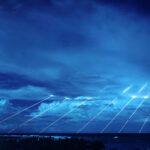

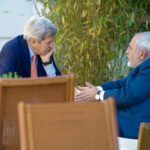
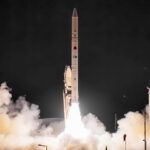
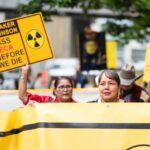





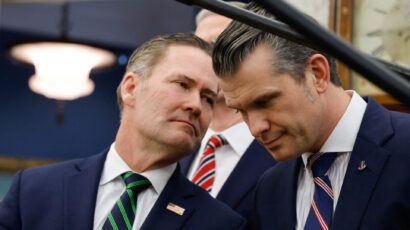
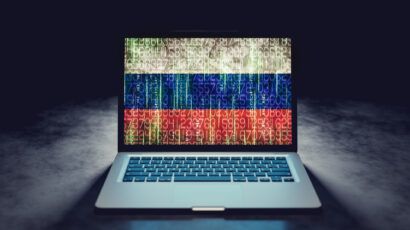

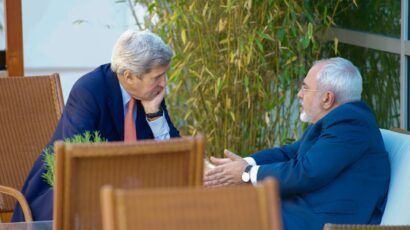
Sad to see an article in the Bulletin espouse such unfettered American exceptionalism. While I agree that Putin’s actions are naked agression, and need to be stopped, they are no more so than the US attacks on Afghanistan and Iraq, and any of a dozen nations we have invaded since WW2. Let’s throw both nations out of the UN for charter violations. Maybe the UN could be then become functional in its primary mission of ending the scourge of war. Does Graham really think that NATO paying for and guiding an insurgency is a good idea? The greatest product of… Read more »
“This is a crisis entirely manufactured by President Putin; Ukraine has never been a military threat to Russia.” What on earth are you talking about? Don’t get me wrong, Putin is a despicable thug and Ukraine is a nation in suffering that must be helped BUT this whole crisis is due to a perturbance to a fragile border configuration between two nuclear powers. The Bulletin used to caution de-escalation and nuclear disarmament but now you are pouring gasoline on the fire telling us that we need to punish Putin and escalate this crisis further – towards a potential nuclear exchange. … Read more »